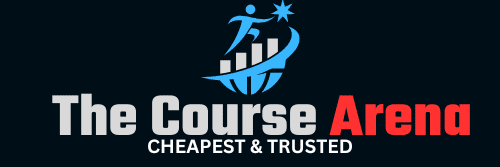Jerry Hoepner – Cognitive Rehabilitation: Therapeutic Strategies for Effective InterventionDescriptionThe rehabilitation of cognitive impairments is becoming more and more complicated. Patients in your care are presenting with complex, multi-faceted cognitive deficits, and at best you have 48 minutes, five days per week to understand and improve upon their cognition. Keeping up with the ever-changing evidence on assessment and interventions for acquired cognitive disorders can feel daunting. Your previous learning in graduate training programs may already be obsolete. Furthermore, you are now better equipped to apply knowledge to the clinical context. We will revisit applications of anatomy and physiology to everyday practice, affirm relevance of current-effective clinical practices, and adapt new practices supported by contemporary evidence. Join Jerry Hoepner, PhD, CCC-SLP, and gain a clear understanding of the functional manifestations of cognitive impairments, organize cognition into a manageable paradigm, and establish functional goals to guide your effective therapy.Cognitive-Linguistic Assessment ToolsDocumentation for ReimbursementAttentionMemoryExecutive Function SkillsVisual Perceptual FunctionDelirium, Depression and Right Hemisphere DysfunctionDrawing on over 15 years of clinical experience and more than 10 years of teaching, Dr. Hoepner will teach you skills to appropriately create a plan of care and realistically facilitate improved function in your patients. Attend this information-packed seminar and systematically understand the anatomy of each component of the cognitive-communication system and move quickly into specific management techniques for intervention. Walk away with practical and useful techniques which can be implemented immediately within your practice. Through examples from experience and case studies, Dr. Hoepner will go beyond lecturing and facilitate learning through a collaborative exchange of ideas relating to therapy techniques.HandoutsWebcast Manual (35.95 MB) 115 Pages Available after PurchaseOutlineCognitive-Linguistic AssessmentsScreening toolsCognitive evaluations (standardized and non-standardized)Language assessments (standardized and non-standardized as they apply to cognitive assessments)Rating scales (provider and consumer)Cognitive Rehabilitation TechniquesRemediation / Compensation / AdaptationTherapy decision-making (dynamic/ongoing assessment; patient centered; goal directed)Documentation of Skilled ServicesJustification for skilled, necessary and reasonable therapyICD-9 / ICD-10 codes pertinent to SLP interventionSMART goalsOutcome measuresFIMSNOMSRelevancy to G-CodesA guide for developing LTG’sKey elements required for:Daily notesProgress notesAttentionPosner’s Theory of AttentionAnatomic substrates of the attention systemAttention subtypesFunctional manifestations of inattentionInterventions strategies for promoting improved attention across recovery continuumRemediationWakefulness (stimulation management programs)Reduced agitation (validation therapy, environmental modification, positive psychology)Increased function (direct attention training with reflection)Compensatory strategies (partner-based supports, environmental interventions)Adaptation techniques (assisted prompting)Goal writing for attention deficitsMemoryAnatomy of the memory systemsMemory typesEncoding / Consolidation / RetrievalInterventions for facilitating recallRemediationUtilization of preserved systems (spaced retrieval, routines, implicit learning)Adaptation techniquesExternal aidsTask-specific learningGoal writing for attention deficitsExecutive Functions (EF)Anatomic substrates of the EF systemMcCloskey’s Executive FunctionsExecutive functioning hierarchySelf-activationSelf-regulationSelf-realizationSelf-determinationFunctional manifestations of EF impairmentsSpecific focus areas for EF’sFunctional problem solvingAwareness / InsightStrategies for reducing the effects of executive dysfunctionRemediation (Reflection, video self-modeling, Ylvisaker’s Goal-Plan-Do-Review)Compensation (routines, environmental interventions, partner-based interventions)Adaptation (cognitive prosthetics)Goal writing for EF and problem solvingVisual Perceptual FunctionAnatomy of the visual systemWarren’s Visual Perceptual HierarchyFunctional manifestation of visual perception deficitsTherapeutic strategies specific to:Low visionHemispatial neglectRemediation (known quantities, metacognitive/self-regulatory interventions)Compensation (environmental interventions, partner-based interventions, edgeness and bookness)Adaptation (visual/attentional prosthetics)Goal writing for visual perceptual impairmentsSpecial ConsiderationsDeliriumDSM-5® criteria for deliriumThe neuroscience of deliriumDiagnosing deliriumProtective, predisposing and precipitating factors for deliriumReversible causes for deliriumTreatment techniques for deliriumDepressionClinical manifestations of geriatric depressionMedications which can cause depressionSLP role in the management of depressionRight Hemisphere Dysfunction (RHD)Assessment tools specific to RHDClinical manifestations of RHDLeft hemispatial neglectPragmatic impairmentReduced awareness / insightCognitive impairmentSpecific Therapy ActivitiesCase StudiesFacultyJerry Hoepner, PhD, CCC-SLPJerry Hoepner, PhD, CCC-SLP, is an assistant professor in the Communication Sciences and Disorders Department at the University of Wisconsin – Eau Claire. In that capacity, he teaches coursework in neuroanatomy, dysphagia, aphasia, acquired cognitive disorders, and counseling. Dr. Hoepner received his MS from the University of Wisconsin – Eau Claire and his PhD from the University of Wisconsin – Madison in Communication Sciences and Disorders. His current research examines the role of partners in supporting the success of everyday interactions of individuals with traumatic brain injury, aphasia and dementias. A second line of research examines teaching pedagogies and learner responses. Clinically, Dr. Hoepner specializes in the use of routines to reduce demands on working memory and executive functions. He co-facilitates Aphasia Camp and the Chippewa Valley Aphasia Group.Speaker Disclosures:Financial: Dr. Jerry Hoepner is an assistant professor and researcher at the University of Wisconsin Eau Claire. He receives a speaking honorarium from PESI, Inc.Nonfinancial: Dr. Jerry Hoepner is on the board of directors for the Chippewa Valley Aphasia Group.
Mental Health
Jerry Hoepner – Cognitive Rehabilitation: Therapeutic Strategies for Effective Intervention
₹5,810
































































